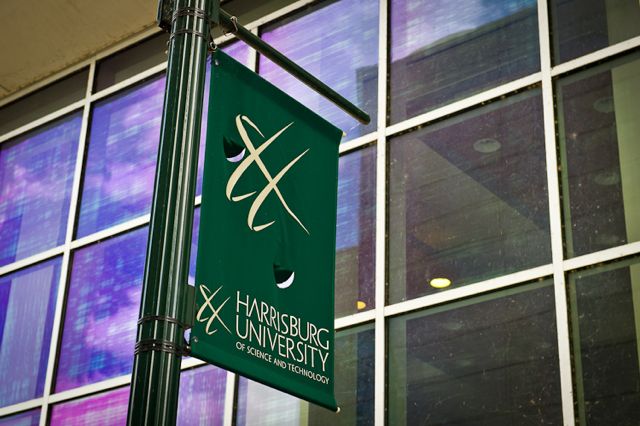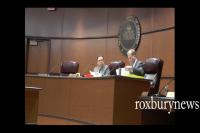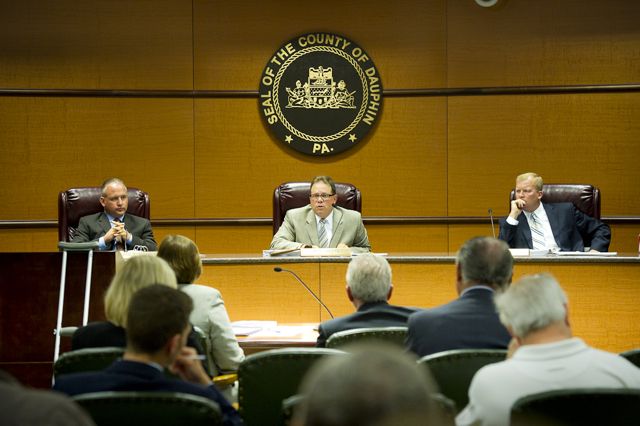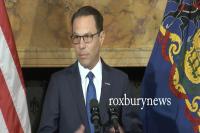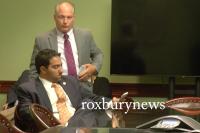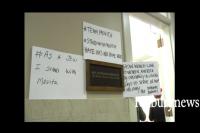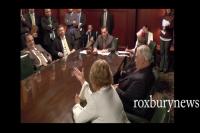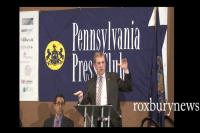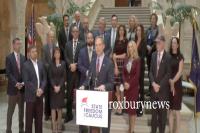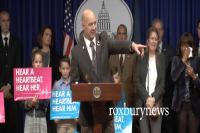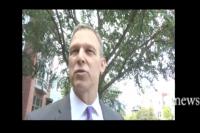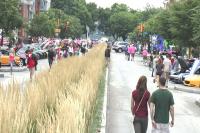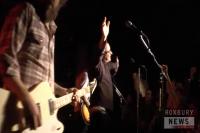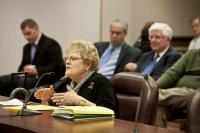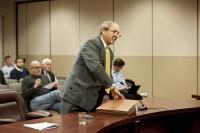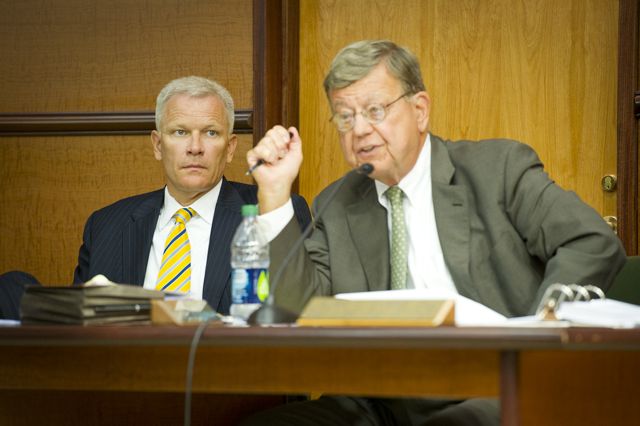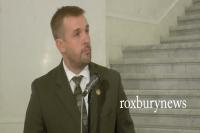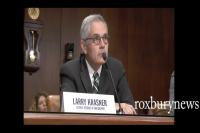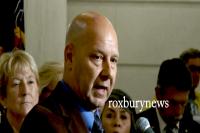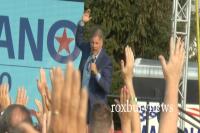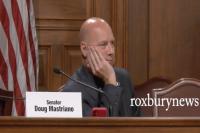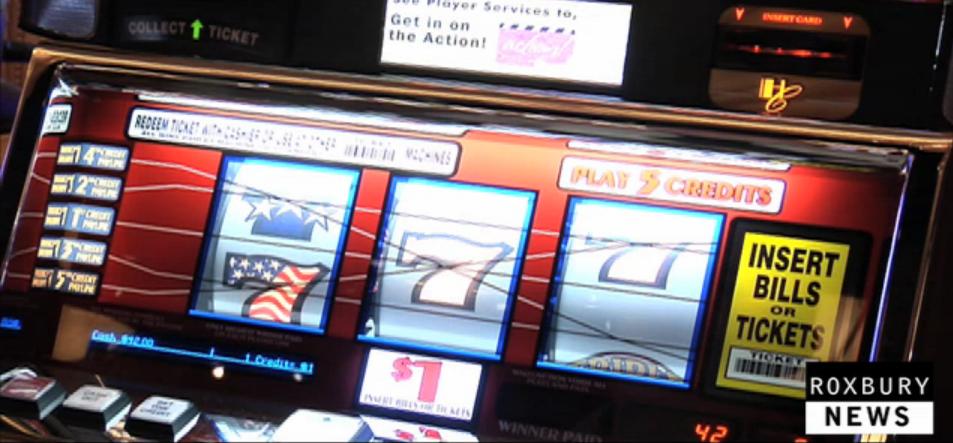Pa House voted against the (Dunbar) amendment by a 116-79 vote Wednesday evening.
Mark Mustio Part 1
Mark Mustio Part 2
____________
A08621 (Dunbar): This amendment places the current language in the bill in a new chapter in Title 4. The amendment also makes omnibus changes to Title 4 as follows:
· VGTs are authorized:
§ Manufacturers, Terminal Operators and Service Technicians are required to be licensed by board.
§ Liquor establishments and truck stops must also be licensed by the board. A liquor licensed establishment that is a grocery store or hotel is not eligible for a VGT license.
§ The board has broad regulatory authority over security and surveillance measures and site plans related to the operation of VGTs
§ A liquor establishment or truck stop may operate up to 5 VGTs in their establishment
§ All VGTs must be manufactured according standards adopted by the board, including:
§ The ability to be monitored by a central computer system managed by the Dept of Revenue.
§ Payout a maximum prize $1,000 dollars and accept a maximum wager of $2.50.
§ The ability to verify a player’s identity and age before play.
§ Gross revenue from VGTs is split as follows:
§ 32% to the establishment
§ 32% to the terminal operator
§ 36% to the Commonwealth.
§ Also, a municipality receives $1,000 annually for each VGT located within the municipality.
§ A nuisance bar task force is established in Philadelphia, which is funded by additional fees on VGT licenses in Philadelphia.
§ Internet Gaming is authorized
§ Each casino may apply to the board for a certificate to conduct internet gaming
§ An Internet Gaming Certificate Holder may offer slot machine style, table games or any other internet gambling game approved by the board.
§ In order to play an iGames, a player must be 21 or older and be located in the Commonwealth, unless the board has negotiated an agreement with another jurisdiction where iGaming is legal.
§ Fees are as follows:
§ $8 million for an iGaming Certificate
§ $2 million for an iGaming Operator, which is an entity that operates/manages iGaming on behalf of a casino
§ There is 14% tax on gross iGaming revenue plus an additional 2% local share assessment. The local share is provided to DCED to administer an economic development grant program which all counties will be eligible for.
§ iGaming on multi-use tablets at airports is also authorized
§ A casino with an iGaming certificate may petition the board to offer iGaming on Multi-Use Computing Devices at international airports.
§ A multi-use device is essentially a tablet that will offer iGaming in addition to the ability to browse the web, check flight status and order food and beverages.
§ Tablets shall only be accessible ticketed passengers 21 or over.
§ A casino must pay a fee of $1 million to offer iGaming on tablets in an airport
§ Taxes on the tablet revenue are:
§ 14% to the state.
§ 20% to the airport
§ Standard slot machines are also authorized at international airports.
§ A casino may petition the board for a certificate to operate slot machines at the airport
§ The maximum number of machines shall be established by the board
§ Slot machines must be in a secure area approved by the board and only accessible to ticketed passengers
§ Fees for the certificate are as follows:
§ $5 million for Philadelphia airport.
§ $2.5million for Pittsburgh airport.
§ $1 million for all other airports.
§ The taxes on the slot revenue are:
§ 34% to the state
§ 20% to the airport
§ Slots are also authorized at nonprimary location locations, which are commonly known as OTWs or OTBs.
§ The board may authorize each Category 1 casino to authorize to operate slot machines at a maximum of 4 OTWs
§ Each OTW shall have a maximum of 250 machines.
§ Slots may not be operated within 50 miles of another casino or OTW, unless there is an agreement between the two casinos filed with the board.
§ There is a $5 million fee for each OTW
§ The tax on OTW slots is 54%, of which 92% goes to the state and the remaining 8% is split evenly between the host county and municipality.
§ Sports wagering is authorized only if the secretary of state determines sports wagering becomes legal under federal law or a federal court ruling.
§ Only casinos would be permitted to apply to the board for a sports wagering certificate.
§ Wagering could occurring within a licensed facility, online or at nonprimary locations.
§ The cost of the certificate is $5million
§ The tax rate is 16% plus a 2% local share.
§ The amendment also makes the following changes to Category 3 casinos
§ Language permitting only patrons of non-gaming amenities to access the gaming floor is removed. Fee for this is $1 million.
§ A Cat 3 casino may also operate an additional 250 machines and 75 machines for a tournament upon payment of a $2.5 million fee.
§ A Cat 3 casino may operate an additional 15 nonbanking table games upon payment of a $1 million fee and conduct table game tournaments.
§ The amendment makes the following change to the final Cat 3 license yet to be issued.
§ It may issue immediately instead of July of 2017
§ The casino may not be located in a county that either:
§ Contains a casino or
§ Shares a boarder with a county that hosts a casino.
§ .
§ The amendment makes the following local share changes:
§ Montgomery County (Valley Forge Casino)
§ Changes local share to allocate the portion currently provided to the CFA for grants in Montgomery County to be distributed as follows:
· 75% to support the maintenance of parks and heritage sites;
· 12.5% to child advocacy learning centers; and
· 12.5% to organizations supporting victims of domestic violence.
§ Dauphin County (Hollywood Casino)
§ Grants made through local share revenue may be used as local matching funds for other grants or loans.
§ Philadelphia (SugarHouse/Live! Casino)
§ 50% or $5 million of the local share, whichever is greater, shall be distributed to the school district.
§ The amendment adds two new penalties:
§ Leaving a minor unattended in a vehicle at a casino is a misdemeanor of the 3rd degree and causes placement on the exclusion list.
§ Second and subsequent violations of underage age gaming causes drivers license suspensions
§ The amendment makes the following miscellaneous changes to Title 4:
§ All license renewals will occur every 5 years instead of 3 years.
§ The board in conjunction with the horse racing commission may authorize Cat 2 and 3 casinos to enter into agreements with racetracks to provide horse wagering.
§ The board can enter into agreements with other jurisdictions to allow the interconnecting of slot machines for progressive payouts.
§ The board can establish standards for and permit skill and hybrid slot machines.
§ Manufactures of slot machines and table game devices can have their product tested by a private testing lab approved by the board.
§ A shortened vendor authorization process is permitted for businesses providing goods or services to a casino that have no nexus with gaming.
§ The 10-year sunset provision related to use of the PA Economic Development and Tourism Funds for projects in Philadelphia and Allegheny Counties is eliminated.
§ Finally, the amendment adds the following appropriation language.
§ $5 million is appropriated from the state gaming fund to the board to administer the Act
§ $10 million is specifically appropriated from the General Fund to the board to administer the VGT chapter, which must be repaid to the fund within a year.
§ Also, a restricted account called the “Public School Pension Reduction Fund” is created.
§ Tax revenue from table games and the new gaming options added by the amendment are to be transferred to this fund. Amounts to the fund are to be transferred annually to PDE to augment the state’s PSERS contributions.
§ The specific amounts are:
· $303 million for FY 2016-2017; and
· $310 million for FY 2017-2018 and each subsequent fiscal year.

